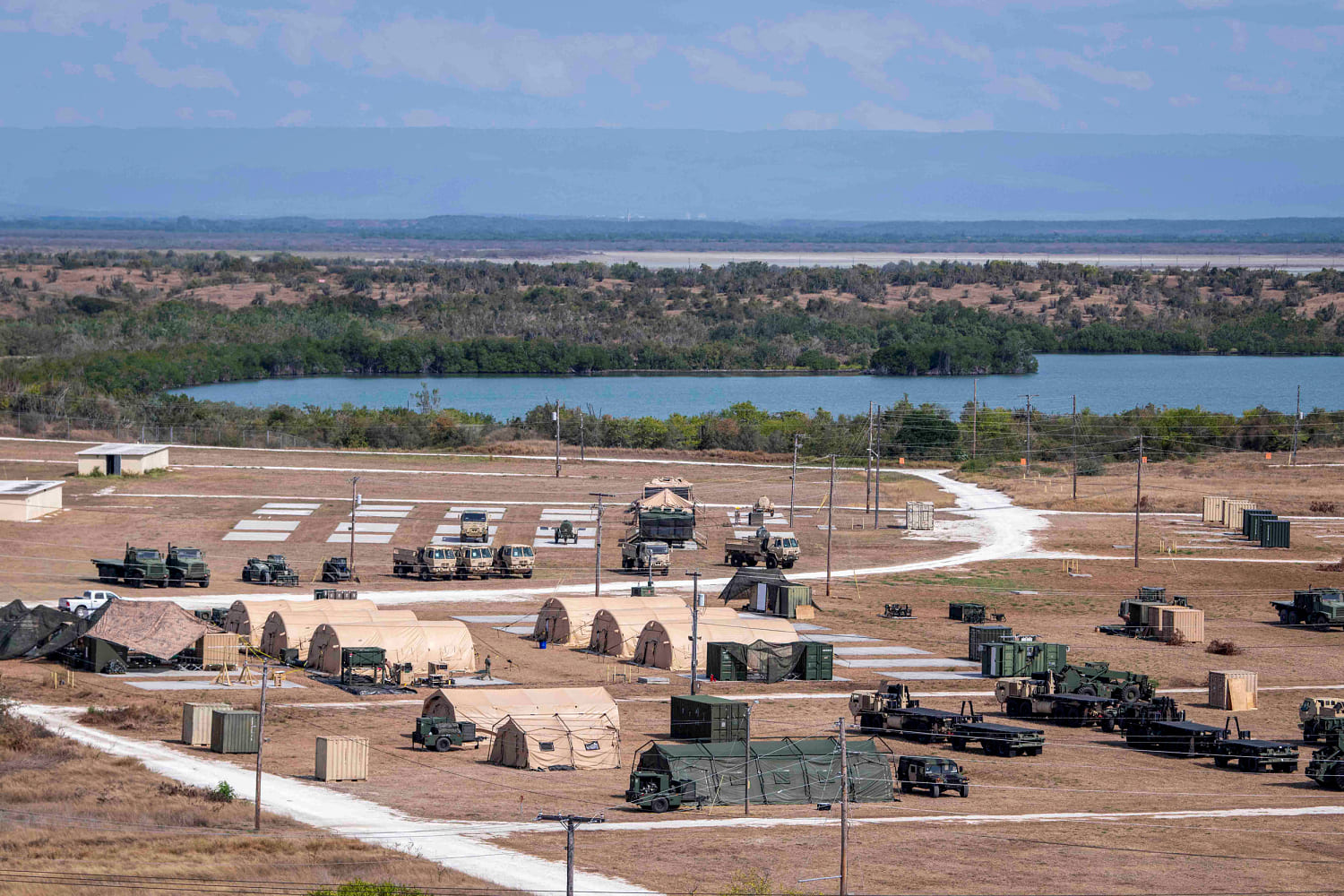
A key piece of the Trump administration’s plan to rapidly expand immigration detention capacity by tens of thousands of beds appears to have fallen through, according to two sources and a government contracting document reviewed by NBC News.
Facing a shortage of immigration detention space, President Donald Trump first announced he would add 30,000 beds for immigrants at Guantánamo Bay, the U.S. naval base in Cuba. When that plan fell through over cost and logistical issues, the plan shifted to Fort Bliss, a military base in Texas, to build a sprawling tent city for immigrants to be held before deportation.
A $3.8 billion contract was awarded to Deployed Resources, a contractor that has previously provided toilets and tents for concertgoers, victims of natural disasters and, more recently, migrants who were briefly detained and processed by Border Patrol.
But last week, new language appeared on the Deployed Resources contract posted to a public records database that says it was terminated. The document says it was terminated “for convenience” and cites Trump’s executive order about “radical transparency” and “wasteful spending,” but it is unclear whether cost savings played into the decision.
Representatives for Deployed Resources did not respond to multiple requests for comment.
Immigration and Customs Enforcement did not respond to a request for comment. The White House and the Defense Department also did not immediately respond to requests for comment.
It is not clear whether the Trump administration will seek another contractor to build facilities for immigrants at Fort Bliss, but two sources familiar with ICE detention settings said all plans to house immigrants at the 1 million-acre military base are on hold.
The lack of space to hold immigrants before they are deported has been a bottleneck for Trump’s efforts to break records on deportations. And the difficulty in quickly building detention space that meets safety requirements mandated by long-standing federal court settlements may spell problems for overall deportation efforts.
The tent city at Fort Bliss would have been Deployed Resources’ first contract for an ICE detention facility, which can sometimes hold migrants for months before they are deported. Unlike Border Patrol processing facilities, which can hold immigrants for a maximum of three days, holding migrants at Fort Bliss would mean the tent city there would need to meet ICE standards.
ICE detention centers must provide individual beds, showers, medical care and other services to migrants.
The canceled contract is another obstacle for the Trump administration’s efforts to increase detention to alleviate strains on the system. One hundred-forty-one facilities now hold 47,928 detainees, far above the 41,500 approved by Congress, which means ICE is not funded by Congress for every bed it uses and could face a budget shortfall by the end of the fiscal year.
The sources familiar with ICE detention settings said that brick-and-mortar ICE detention centers take longer to build than tent facilities but that they are better equipped to detain immigrants for long periods.
The sources said maintaining tents, or what are referred to as “soft-sided facilities,” are also more challenging because of the risks they present for migrants and detention officers.
Federal court settlements require ICE to hold migrants in conditions that are nonpunitive and to give them access to basic necessities like running water and air conditioning, which are more difficult to provide in tents. And such facilities are less secure than buildings, which increases pressures on detention officers.
